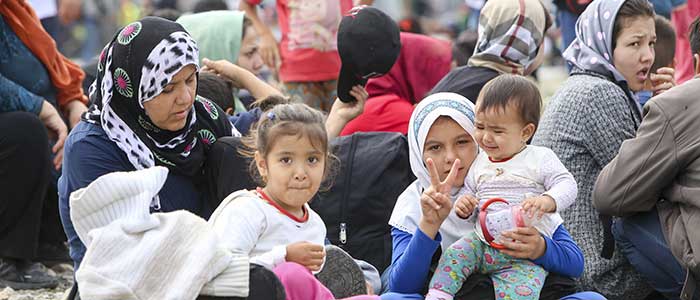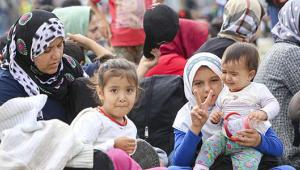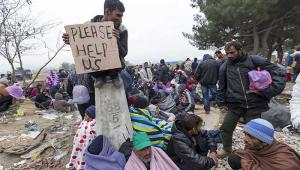As the refugee crisis unfolded on their doorstep, European countries in particular increasingly allocated their official overseas aid to support refugees at home. At the start of the year, ONE warned governments that this would reduce the resources desperately needed to tackle extreme poverty.
Official figures for 2014, released by the OECD in January, highlighted that while official aid contributions by developed countries had risen, the amount delivered to the world’s least developed nations had declined by almost $2bn.
According to ONE’s report, published today, governments from around the world spent $13.9bn of their official aid budgets on supporting refugees in their own countries in 2015, rather than overseas.
Again, official aid flows increased by 7% over the last year compared to 2014. But this falls to 1.8% when in-donor refugee costs are removed, ONE said.
For some countries, these accounted for over 20% of the official aid budget, as in Denmark, Austria, Belgium and the Czech Republic. ONE highlighted more aid was spent in Germany last year than in Ethiopia.
Eloise Todd, global policy director at The ONE Campaign, said that while refugees should “absolutely get the support they need” this should be done with domestic funds, not by cutting into life-saving aid for the world’s poorest.
Many countries and organisations are demonstrating that support for refugees and those living in extreme poverty overseas can be scaled up simultaneously, the report stressed.
However, the United Nation’s record $21.9bn aid appeal for global humanitarian crises has so far received only one third of the funding needed this year. ONE also stressed that the report evidences the global community is failing to uphold its funding commitments to help the 900 million people trapped in extreme poverty – the condition that fuels instability, disease, conflict and therefore displacement.
The report was published ahead of a high-level summit on the refugee crisis, co-hosted by US president Barack Obama and United Nations general secretary Ban Ki-Moon, taking place in New York today.
The summit hopes to make progress on how the world can share the burden of the 65 million refugees and displaced persons around the world – equal to the population of the UK. It will give another two years for the international community to settle on a “global compact” on how best to do this.
Leaders will be expected to make big pledges to take in more refugees, do more to help those that have already taken the difficult and dangerous journey to the developed world, in Europe especially, or deliver greater support to host countries in the developing world, which care for 86% of the world’s refugees.
The International Rescue Committee has warned that unless world leaders commit to concrete, collective action, the summit will be a failure.
Its president and chief executive, David Miliband, said: “These summits must go beyond stating challenges. They must expand resources, modernise systems, update strategies and combat the fatigue of refugees and receiving populations alike.”
Ahead of the summit, UN human rights experts have also issued a reminder to participants that “human rights are for all, including migrants”.
They recalled nations’ obligations under international human rights and humanitarian law, and warned that a draft summit declaration contains areas of “grave concern”. These included the detention of children in particular.
Reiterating concerns about “toxic, discriminatory and xenophobic” narratives taking hold in many countries, the experts also called for measures to counter hate speech and hold those who incite violence or hatred to account.














